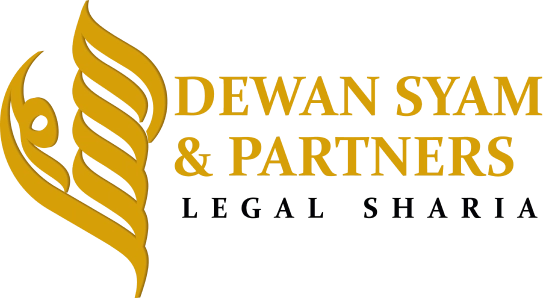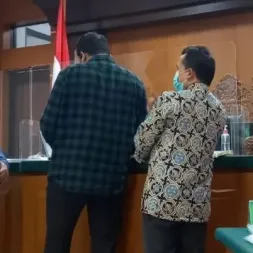Publication
Can Cancel Mortgage Rights?
Author: M.Akhbar Dewani, S.H., M.H.' />Can the Restructuring of Sharia Financing Agreements
Author: M.Akhbar Dewani, S.H., M.H.' />
Can the Restructuring of Sharia Financing Agreements
Can Cancel Mortgage Rights?
Author: M.Akhbar Dewani, S.H., M.H.
Credit/financing restructuring in the banking industry is a natural thing, where the choice is a solution so that the financing carried out still has NPLs that are credible enough for the bank, in addition to the bank's efforts in order to help customers to settle their obligations (Article 1 paragraph 6 Pojk No; 12 /Pojk.03/2015). In banking practice, restructuring activities are of course followed by a new agreement followed by the making of a new agreement or additional agreement (addendum), with different clauses and agreements.
In conventional banks, this action is not a new and crucial legal issue considering that conventional banks do not have various contract products, so that when restructuring occurs, the choice of binding used by the parties is still the same as the original contract. However, it can be different with Islamic banking, which has many choices of contracts that can be determined in accordance with the wishes and agreements of the parties made at the time of the restructuring contract.
When this restructuring occurs, it will certainly affect all legal instruments that apply to the financing guarantee, without exception to the Mortgage Rights (HT).
Accesoir Nature of Agreement in Mortgage
HT must follow the main financing agreement, so that the guarantee nature of the property can be used for debts that have been issued or will exist. The granting of HT is preceded by a promise to grant HT as collateral for the repayment of certain debts, which is stated in and is an inseparable part of the relevant debt agreement or other agreements that give rise to the debt.
In accordance with the nature of accessoir HT, the granting must be an ancillary of the main agreement, namely the agreement that gives rise to the legal relationship of debt and credit guaranteed repayment. The agreement that gives rise to this debt and credit relationship can be made by deed under hand or must be made by authentic deed, depending on the legal provisions governing the material of the agreement. (Article 10 paragraph 1 of Law No. 4 of 1996).
Debts that are guaranteed to be repaid by HT can be debts that have existed or that have been promised with a certain amount or an amount that at the time the application for execution of HT is submitted can be determined based on the debt and credit agreement or other agreements that give rise to the debt and credit relationship concerned. (Article 3 UUHT Law No. 4 of 1996).
The existence of HT depends on the existence of receivables guaranteed repayment. If the receivable is erased due to repayment or other causes, automatically HT concerned becomes erased as well. (Article 18 paragraph 1 of Law No. 4 of 1996).
As a manifestation of legal certainty, the accesoir nature is also strictly practiced in debt and credit agreements or other agreements, which are guaranteed repayment. In the event that the receivable in question passes to another creditor, the HT that guarantees it, by law, also passes to that creditor.
Because the Hak Tanggungan by its nature is an accessory to a certain receivable, which is based on a debt and credit agreement or other agreement, its birth and existence are determined by the existence of the receivable guaranteed by its repayment. In the event that the receivable in question is transferred to another creditor, the Mortgage Right that guarantees it, by law, also transfers to that creditor. The recording of the transfer of the Mortgage Right does not require a PPAT deed, but is sufficiently based on the deed of transfer of the secured receivables. Without neglecting legal certainty for the parties concerned, the simplicity of administration of the registration of Mortgage Rights, apart from the transfer and extinguishment of secured receivables, also appears in the extinguishment of the right due to other causes, namely because it is released by the creditor concerned, clearing the object of HT based on the determination of ranking by the Chairman of the District Court, and the extinguishment of land rights that are used as collateral. (general explanation point 8 of Law No. 4 of 1996).
These provisions are intended to show that in addition to the accesoir nature owned by HT is always attached, HT made must also specifically and in detail refer to the debt indicated in a particular agreement, to avoid ambiguous meaning and multiple interpretations that can result in the blurring of the HT itself.
Between Addendum and New Agreement
In the rules of civil law, it is determined that every agreement is valid like a law for the parties who agree to the agreement (1338 KUHPer). While in banking practice there are many kinds of terms related to agreements such as addendum agreements, amendments, changes to agreements, principal agreements and accessories agreements, and extension of agreements / contracts. The large Indonesian dictionary defines that what is meant by an addendum agreement is an additional volume (to a book); attachment, provision or additional article, for example in a deed. Generally, this addendum is used when there are additions or attachments to the main agreement and is an integral part of the main agreement. Because of its changeable nature in order to keep up with dynamic business developments or intended to change some of the provisions of the main agreement, while still agreeing on the main clauses in the main agreement.
In the Islamic banking industry, addendum agreements are usually made when financing restructuring, debt renewal (novation), subrogration, cessie, or in the condition of placing investment funds to partners in the form of agreements with channeling, servicing or executing schemes. Meanwhile, an amendment agreement is an agreement that agrees to change the initial agreement, either partially or completely, on the basis of which the rights and obligations of the parties also change.
Of course, as long as the agreement meets the objective and subjective requirements as specified in Article 1320 of the Civil Code, the agreement still has limited binding independence on the agreement, including when the agreement is based on other agreements, for example. Conversion of Agreements in Financing Restructuring
Regarding the restructuring of the Banten High Court decision Number 118 / PDT / 2015 / PT BTN provides a reference to sharia industry practitioners in Indonesia that, the latest contract resulting from restructuring cannot be used as a basis in an effort to carry out execution, with the fact that the first contract is murabahah and the restructuring contract is a musyarakah contract.
DSN MUI Fatwa NO: 04/DSN-MUI/IV/2000 states that "sharia banks need to have murabahah facilities for those who need them, which is selling an item by confirming its purchase price to the buyer and the buyer pays more as profit". While the DSN MUI fatwa NO: 08/DSN-MUI/IV/2000 concerning musyarakah determines that financing is based on a cooperation contract between two or more parties for a certain business, in which each party contributes funds with the provision that profits and risks will be borne together in accordance with the agreement. Of course, in principle, HT, which was originally used to guarantee financing on the basis of "buying and selling", has changed to guarantee financing on the basis of a "joint venture" contract, which has different sharia objectives. Of course, the difference in contracts in this restructuring is very possible considering that there are at least 5 different basic contract schemes in Islamic banking: first, profit-sharing transactions in the form of mudharabah and musyarakah; second, leasing transactions in the form of ijarah or lease purchase, in the form of ijarah muntahiyah bit tamlik; third, sale and purchase transactions in the form of murabahah, salam and istishna' receivables; fourth, lending and borrowing transactions in the form of qardh receivables; and fifth, service leasing transactions in the form of ijarah for multi-service transactions.
Therefore, for example, HT intended to guarantee debt with a murabahah contract only applies to murabahah debt, so the consequences do not apply, for example, to a musyarakah restructuring contract even though it is still in one financing. Even so, this still does not erase the debts of customers who owe banks.
In the event that the bank wants HT to also apply to the original principal contract and the restructuring contract, then by law based on the existing HT provisions it is also required to register HT at the land office in order to guarantee the debt based on the agreement before and after the restructuring.
In conventional banks, this action is not a new and crucial legal issue considering that conventional banks do not have various contract products, so that when restructuring occurs, the choice of binding used by the parties is still the same as the original contract. However, it can be different with Islamic banking, which has many choices of contracts that can be determined in accordance with the wishes and agreements of the parties made at the time of the restructuring contract.
When this restructuring occurs, it will certainly affect all legal instruments that apply to the financing guarantee, without exception to the Mortgage Rights (HT).
Accesoir Nature of Agreement in Mortgage
HT must follow the main financing agreement, so that the guarantee nature of the property can be used for debts that have been issued or will exist. The granting of HT is preceded by a promise to grant HT as collateral for the repayment of certain debts, which is stated in and is an inseparable part of the relevant debt agreement or other agreements that give rise to the debt.
In accordance with the nature of accessoir HT, the granting must be an ancillary of the main agreement, namely the agreement that gives rise to the legal relationship of debt and credit guaranteed repayment. The agreement that gives rise to this debt and credit relationship can be made by deed under hand or must be made by authentic deed, depending on the legal provisions governing the material of the agreement. (Article 10 paragraph 1 of Law No. 4 of 1996).
Debts that are guaranteed to be repaid by HT can be debts that have existed or that have been promised with a certain amount or an amount that at the time the application for execution of HT is submitted can be determined based on the debt and credit agreement or other agreements that give rise to the debt and credit relationship concerned. (Article 3 UUHT Law No. 4 of 1996).
The existence of HT depends on the existence of receivables guaranteed repayment. If the receivable is erased due to repayment or other causes, automatically HT concerned becomes erased as well. (Article 18 paragraph 1 of Law No. 4 of 1996).
As a manifestation of legal certainty, the accesoir nature is also strictly practiced in debt and credit agreements or other agreements, which are guaranteed repayment. In the event that the receivable in question passes to another creditor, the HT that guarantees it, by law, also passes to that creditor.
Because the Hak Tanggungan by its nature is an accessory to a certain receivable, which is based on a debt and credit agreement or other agreement, its birth and existence are determined by the existence of the receivable guaranteed by its repayment. In the event that the receivable in question is transferred to another creditor, the Mortgage Right that guarantees it, by law, also transfers to that creditor. The recording of the transfer of the Mortgage Right does not require a PPAT deed, but is sufficiently based on the deed of transfer of the secured receivables. Without neglecting legal certainty for the parties concerned, the simplicity of administration of the registration of Mortgage Rights, apart from the transfer and extinguishment of secured receivables, also appears in the extinguishment of the right due to other causes, namely because it is released by the creditor concerned, clearing the object of HT based on the determination of ranking by the Chairman of the District Court, and the extinguishment of land rights that are used as collateral. (general explanation point 8 of Law No. 4 of 1996).
These provisions are intended to show that in addition to the accesoir nature owned by HT is always attached, HT made must also specifically and in detail refer to the debt indicated in a particular agreement, to avoid ambiguous meaning and multiple interpretations that can result in the blurring of the HT itself.
Between Addendum and New Agreement
In the rules of civil law, it is determined that every agreement is valid like a law for the parties who agree to the agreement (1338 KUHPer). While in banking practice there are many kinds of terms related to agreements such as addendum agreements, amendments, changes to agreements, principal agreements and accessories agreements, and extension of agreements / contracts. The large Indonesian dictionary defines that what is meant by an addendum agreement is an additional volume (to a book); attachment, provision or additional article, for example in a deed. Generally, this addendum is used when there are additions or attachments to the main agreement and is an integral part of the main agreement. Because of its changeable nature in order to keep up with dynamic business developments or intended to change some of the provisions of the main agreement, while still agreeing on the main clauses in the main agreement.
In the Islamic banking industry, addendum agreements are usually made when financing restructuring, debt renewal (novation), subrogration, cessie, or in the condition of placing investment funds to partners in the form of agreements with channeling, servicing or executing schemes. Meanwhile, an amendment agreement is an agreement that agrees to change the initial agreement, either partially or completely, on the basis of which the rights and obligations of the parties also change.
Of course, as long as the agreement meets the objective and subjective requirements as specified in Article 1320 of the Civil Code, the agreement still has limited binding independence on the agreement, including when the agreement is based on other agreements, for example. Conversion of Agreements in Financing Restructuring
Regarding the restructuring of the Banten High Court decision Number 118 / PDT / 2015 / PT BTN provides a reference to sharia industry practitioners in Indonesia that, the latest contract resulting from restructuring cannot be used as a basis in an effort to carry out execution, with the fact that the first contract is murabahah and the restructuring contract is a musyarakah contract.
DSN MUI Fatwa NO: 04/DSN-MUI/IV/2000 states that "sharia banks need to have murabahah facilities for those who need them, which is selling an item by confirming its purchase price to the buyer and the buyer pays more as profit". While the DSN MUI fatwa NO: 08/DSN-MUI/IV/2000 concerning musyarakah determines that financing is based on a cooperation contract between two or more parties for a certain business, in which each party contributes funds with the provision that profits and risks will be borne together in accordance with the agreement. Of course, in principle, HT, which was originally used to guarantee financing on the basis of "buying and selling", has changed to guarantee financing on the basis of a "joint venture" contract, which has different sharia objectives. Of course, the difference in contracts in this restructuring is very possible considering that there are at least 5 different basic contract schemes in Islamic banking: first, profit-sharing transactions in the form of mudharabah and musyarakah; second, leasing transactions in the form of ijarah or lease purchase, in the form of ijarah muntahiyah bit tamlik; third, sale and purchase transactions in the form of murabahah, salam and istishna' receivables; fourth, lending and borrowing transactions in the form of qardh receivables; and fifth, service leasing transactions in the form of ijarah for multi-service transactions.
Therefore, for example, HT intended to guarantee debt with a murabahah contract only applies to murabahah debt, so the consequences do not apply, for example, to a musyarakah restructuring contract even though it is still in one financing. Even so, this still does not erase the debts of customers who owe banks.
In the event that the bank wants HT to also apply to the original principal contract and the restructuring contract, then by law based on the existing HT provisions it is also required to register HT at the land office in order to guarantee the debt based on the agreement before and after the restructuring.






